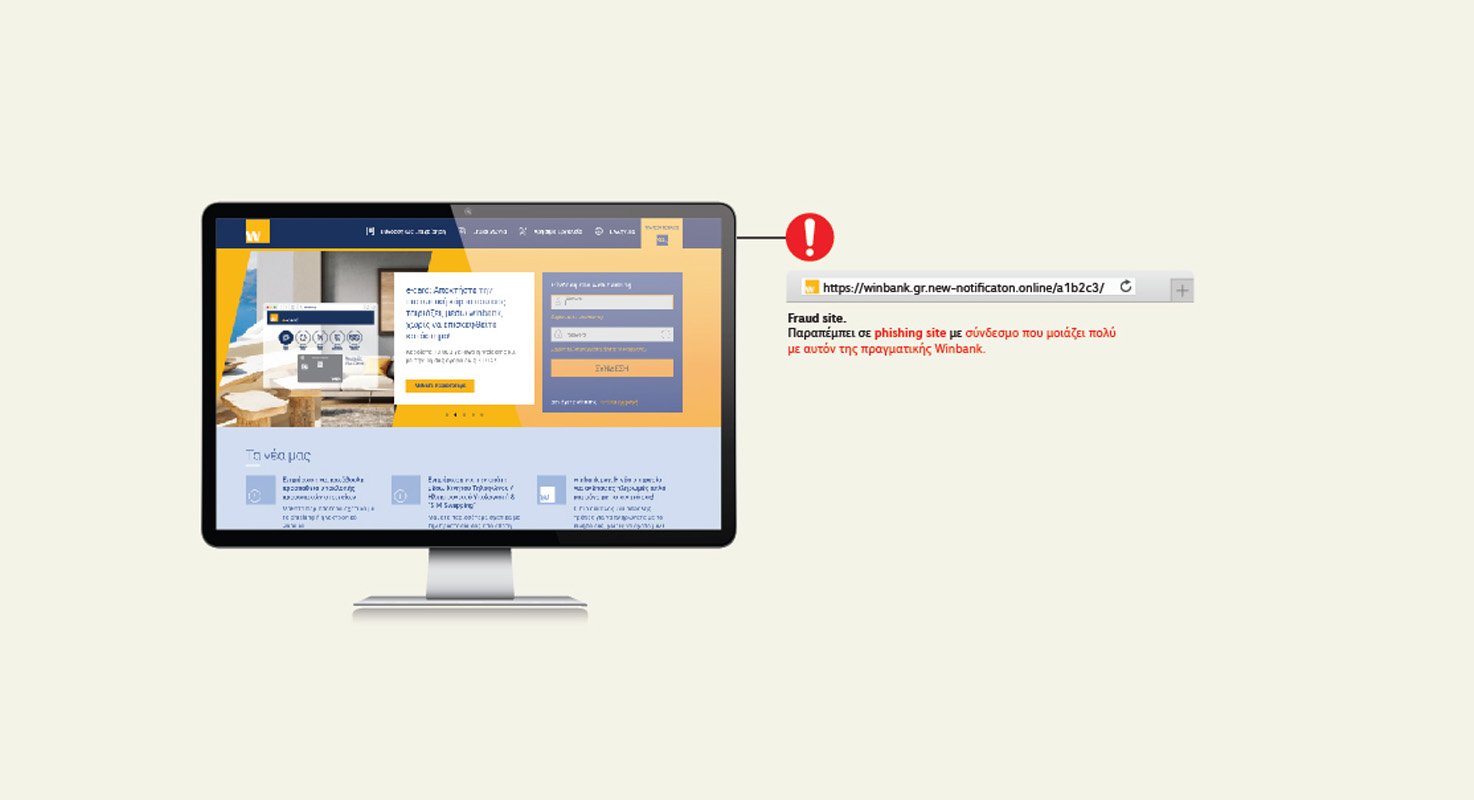Piraeus Bank published a warning on its blog with the aim of protecting its customers (and more). Below is the publication and we hope more will follow. The Greek public needs basic training in its use Internet and transaction security.
Piraeus Bank he says:
With fraud cases on the rise, security awareness is essential.
One of the topics presented in the last period is Phishing. The practice of Phishing (electronic data fishing) uses emails or sms as a means to intercept the person's personal data. These messages contain misleading content and their senders subtwoidentify the identity of a legal organization/company/bank. Their aim is to extract private personal and financial data such as e-banking username, passwords access, στοιχεία χρεωστικών/ πιστωτικών καρτών κοκ. Στη συνέχεια, τα δεδομένα αυτά μπορούν να χρησιμοποιηθούν για την πραγματοποίηση μη εξουσιοδοτημένων οικονομικών συναλλαγών με αποτέλεσμα την challenge οικονομικής ζημίας. Η πλειοψηφία των Phishing μηνυμάτων επικαλείται είτε κάποιο πρόβλημα στον λογαριασμό σας, είτε απαιτεί την επιβεβαίωσή σας για εκτέλεση συναλλαγής, (η οποία δεν έχει λάβει επίσημη εντολή από εσάς), είτε energy service upgrade, or confirmation of personal data.

Regarding the way your data is stolen, it is a common practice to spy on them via email or sms that are sent and ask you to visit the website of the Organization, choosing a link included in the text (as shown in the image above). In case you choose to visit the link you will notice that this page simulates or even copies completely familiar electronic environments, such as the electronic banking of Piraeus Bank.
However, in no case is the "fake" environment an official page of the Organization you know. For your safety, it is recommended that you do not select the link and state your personal details and codes, as the experts will immediately proceed with transactions, causing you financial loss.

In case you receive a suspicious email / sms, it is recommended that you do not enter the link that prompts you. Then for your safety you should contact the Organization directly (in this case Piraeus Bank). In case the sender is Piraeus Bank, it is recommended that you call the 24-hour telephone service stating the incident. After the statement of the incident and following the instructions of an authorized representative, you should delete the email or sms that you have received, without forwarding it to anyone other than the competent Service of Piraeus Bank, if requested.
At this point, let us remind you that Piraeus Bank will never ask you in any way for the passwords to electronic banking services (winbank), or data and card codes, but will not proceed with a process of updating-verifying personal data, which excludes any possibility that the email or sms you received comes from Piraeus Bank.





